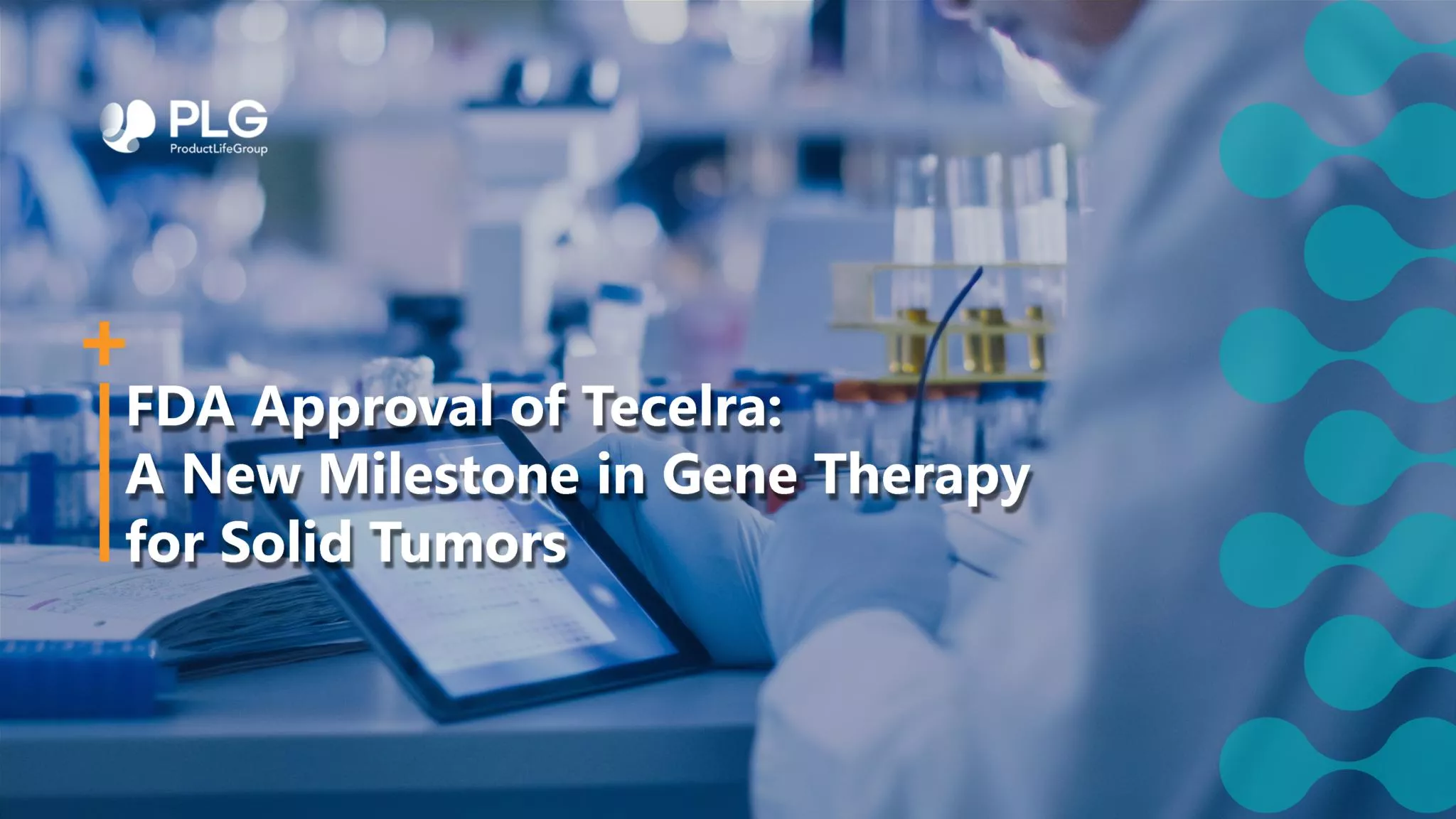
Commentary: FDA Approval of Tecelra – A New Milestone in Gene Therapy for Solid Tumors
09 august 2024

The recent FDA approval of Tecelra (afamitresgene autoleucel) as the first gene therapy for metastatic synovial sarcoma represents a significant achievement in oncology (www.fda.gov/news-events). This approval is a significant step forward, not only for patients with this rare and aggressive cancer but also for the broader field of gene therapy, particularly in the treatment of solid tumors—a category historically resistant to such approaches.
Tecelra: A Breakthrough for Synovial Sarcoma Patients
Synovial sarcoma primarily affects young adults and is known for its aggressive nature and limited treatment options, especially in its metastatic form (PMC10470271). Tecelra’s approval offers new hope to these patients, providing a treatment option that harnesses the body’s own immune system to fight cancer. By genetically modifying T cells to target and attack cancer cells, Tecelra represents a new frontier in cancer treatment, demonstrating the potential of gene therapies to address the complex challenges posed by solid tumors.
Development Challenges and Precedents in Gene Therapy
Tecelra’s approval is part of a broader trend in the FDA’s approach to gene and cell therapies. Over the past few years, we’ve seen the approval of several engineered cell therapies, including CAR T-cell therapies like Kymriah and Yescarta, and CRISPR-based treatments like Casgevy (exagamglogene autotemcel), which was recently approved for treating sickle cell disease and transfusion-dependent beta-thalassemia (www.fda.gov/news-events/), and tumor-infiltrating lymphocyte (TIL) therapies like Amtagvi (lifileucel), approved for the treatment of advanced melanoma (www.fda.gov/drugs/).
These approvals have not been without challenges. Key scientific and clinical hurdles for solid tumors include effectively delivering the therapy to the tumor site and ensuring it selectively targets cancer cells without harming surrounding healthy tissue. The complex tumor microenvironment often acts as a barrier, reducing the therapy’s efficacy. Additionally, the variability in tumor biology necessitates adaptive and innovative clinical trial designs to adequately capture the therapy’s impact, as discussed in recent studies on the challenges of translating gene therapies to solid tumors (PMC9888521).
Understanding the Regulatory Hurdles
The approval process for engineered cell therapies targeting solid tumors, such as Tecelra, involves significant regulatory challenges. Complex clinical trial designs are needed to adequately assess safety and efficacy. The FDA’s recent draft guidance on potency assays for cellular and gene therapy products emphasizes the importance of developing a science- and risk-based strategy to ensure product potency across the therapy’s lifecycle. This guidance highlights the need for robust manufacturing processes and potency assays that confirm each batch’s ability to achieve the intended therapeutic effect, which is essential for the product’s approval and ongoing market presence.
Tecelra’s receipt of Orphan Drug, Regenerative Medicine Advanced Therapy (RMAT), and Priority Review designations reflects the FDA’s recognition of its potential to address unmet medical needs (FDA Designations). These designations also facilitate faster access to the market while the company conducts further trials to verify clinical benefits. Tecelra’s ongoing confirmatory trials underscore the critical role of well-designed clinical trials in the regulatory approval process.
Manufacturing and quality control present additional challenges. The production of gene-modified cells must meet stringent standards to ensure consistency, safety, and efficacy. The recent FDA approval of companion diagnostic tools, such as Thermo Fisher Scientific’s HLA typing kit for T-cell receptor therapies, underscores the importance of precise and reliable manufacturing processes (Thermo Fisher HLA Typing Kit Approval).
Impact of the FDA’s Platform Guidance
The FDA’s recent Platform Guidance for cell and gene therapies is poised to play a critical role in the future development and approval of similar therapies. This guidance outlines general considerations for the eligibility of these advanced therapies, streamlining the approval process for products with minor differences. For example, the guidance could significantly impact the development of therapies like Adaptimmune’s TCR-Ts, allowing for more efficient adaptation and approval across different HLA types without requiring a full R&D process for each variation.
Implications for Future Therapies and Conclusion
The approval of Tecelra is a significant milestone expected to catalyze further advancements in gene therapy for solid tumors. It demonstrates the potential of gene modification techniques to address cancers that have been traditionally difficult to target with conventional therapies. Moving forward, continued innovation in delivery methods, tumor targeting, and overcoming the tumor microenvironment will be essential.
This milestone also highlights the importance of collaboration between regulatory bodies, biotech companies, and clinical researchers. The successful development of Tecelra required coordinated efforts in clinical trial design, manufacturing, and regulatory submissions, setting a new standard for future therapies.
For companies in the biotech and medtech sectors, staying ahead of regulatory developments and leveraging new FDA guidance will be crucial in navigating this evolving landscape. ProductLife Group is committed to supporting these efforts, offering expert guidance in regulatory compliance, and helping bring innovative therapies from the lab to the clinic, while also considering commercial sustainability. The approval of Tecelra serves as both an inspiration and a roadmap for the continued advancement of gene therapies with the potential to transform patient outcomes.
Written by:
Mélissa Bou Jaoudeh
Innovative Product Development Officer
Register to our news and events
Go to our Events to register
Go to our News to get insights
